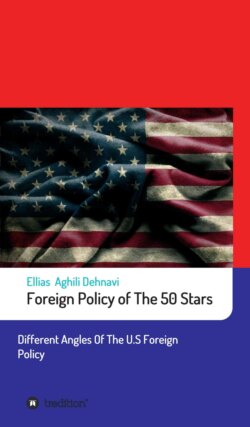Foreign Policy of The 50 Stars

Реклама. ООО «ЛитРес», ИНН: 7719571260.
Оглавление
Ellias Aghili Dehnavi. Foreign Policy of The 50 Stars
Отрывок из книги
Ellias Aghili Dehnavi
Foreign Policy of The
.....
Finally, even if America's military power had nothing to do with electing secretaries-general, we should not conclude that it has nothing to do with America's standing within the institution. America's preeminence within the United Nations has been clear. So, too, is the fact that this stems from America's position as the world's strongest nation, a position deriving from both its economic and military strength. Thus, although nuclear weapons cannot buy secretary-general elections, great military power brings great influence in an international organization, one of whose main purposes, after all, is to achieve collective security through the threat or use of force.
The Third World example is equally misleading. To see why, let us perform a simple "thought experiment." Although a Third World leader that had armed his state with nuclear weapons might not rise automatically to the top of the Third World pack, he or she would become a mighty important actor nonetheless. Think of how less weighty China and India, which have nuclear weapons, would be viewed if they did not possess them; and think of how Iraq, Iran, or Libya, which do not have them, would be viewed if they did. For the former set of states, nuclear weapons add to their global political standing; for the latter set, their mere attempts to acquire them have caused their prominence to rise considerably. By themselves, nuclear weapons cannot buy the top slot, in the Third World or elsewhere. Neither economic wealth, nor military power, nor any other power asset alone, can buy top dog. That slot is reserved for the state that surpasses the others in all the key categories of power. Although they do not buy the top position, nuclear weapons nevertheless do significantly enhance the international influence of any state that possesses them, if influence is measured by how seriously a state is taken by others. In this particular case, then, Baldwin is correct to argue that nuclear weapons are not readily convertible into another instrumental asset. Although true, the point is irrelevant: they add to the ultimate resource for which all the other assets of a state are mustered—political influence.
.....